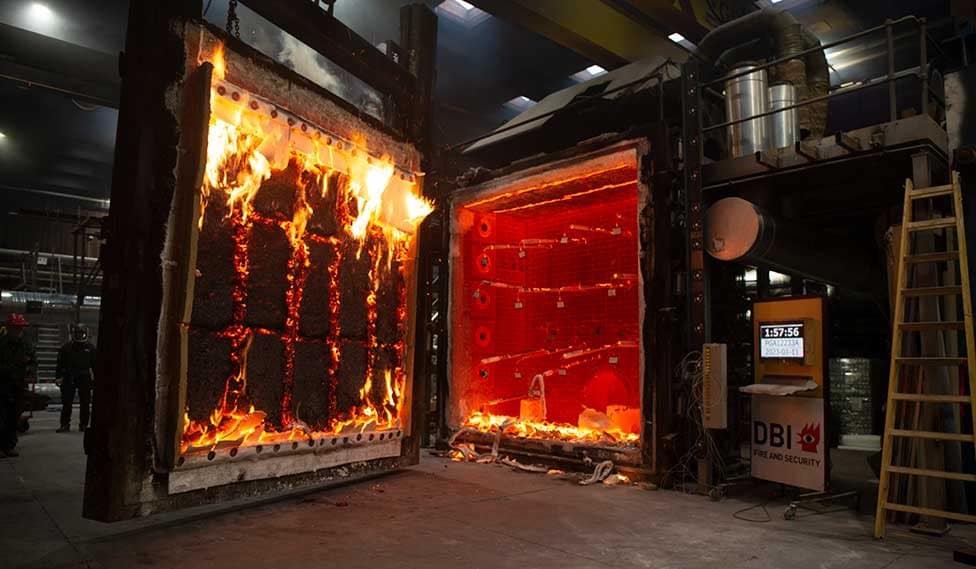The research project “Wood:UpHigh” has developed a comprehensive knowledge catalog on bio-based construction. This initiative has produced 10 test reports, now freely available to the construction industry, providing essential data on the fire resistance of bio-based materials in taller structures.
DBI’s Wood:UpHigh project has expanded the possibilities of constructing tall buildings using a combination of load-bearing wooden structures and bio-based insulation materials.
At the project’s conclusion, the construction industry now has access to 10 test reports. These reports can be used to document the fire resistance of bio-based materials when building at height.
Currently, pre-accepted solutions allow for load-bearing wooden structures in buildings up to 12 meters and bio-based insulation up to 22 meters. However, when these two elements are combined, the height limit is 5.1 meters. Wood:UpHigh has shown that fire resistance is not an obstacle for constructing tall buildings with the tested materials. Nevertheless, the reaction of the insulation materials to fire must still be managed by a fire advisor in fire class 3/4 as a deviation from the pre-accepted solutions.
“It has been important for us to demonstrate to the market that it is indeed possible to build tall with bio-based materials. With the ten test reports, the construction industry now has a robust toolbox at its disposal,” says Christen Kjer-Hansen, DBI’s project manager for Wood:UpHigh.
From Test to Reality
Architects or contractors can base their projects on the constructions outlined in the test reports and have a fire advisor manage the deviation concerning the insulation material’s reaction to fire, which remains in fire class 4.
“We had a client who wanted to build something similar to what we had documented in one of the test reports. However, since the specific brands of materials are anonymized in the reports, the client’s fire advisor would not accept the report as documentation. In this case, we could offer an assessment based on the test report, allowing the client to achieve their goal quickly and affordably,” explains Christen Kjer-Hansen.
The reports are designed to be neutral, without favoring any manufacturers, which requires DBI to include an extra safety margin in their assessments. Christian B. Andersen, head of DBI’s fire testing department, adds, “The reports from Wood:UpHigh are excellent for making assessments because there are measurements from thermocouples throughout the various constructions.”
Although the goal is to integrate the results into the construction industry’s pre-accepted solutions, Christen Kjer-Hansen acknowledges that this process is lengthy. A working group is now considering how best to submit the results to the Ministry of Social Affairs and Housing for potential approval.
“It is important for us that the results are utilized and that we succeed in pushing the current boundaries for bio-based construction. Therefore, we also focus on communicating the results and the message that assessments can be the way forward for the entire industry,” concludes Christen Kjer-Hansen.
Wood:UpHigh is supported by Realdania, the Owners’ Investment Fund, and the Ministry of Education and Research.
Photo: DBI
Seneste aktuelt
25. oktober 2024
Deep Knowledge and Testing Facilities: A Sea of Opportunities
27. september 2024
Making Eye Medication Easier to Use
5. august 2024

